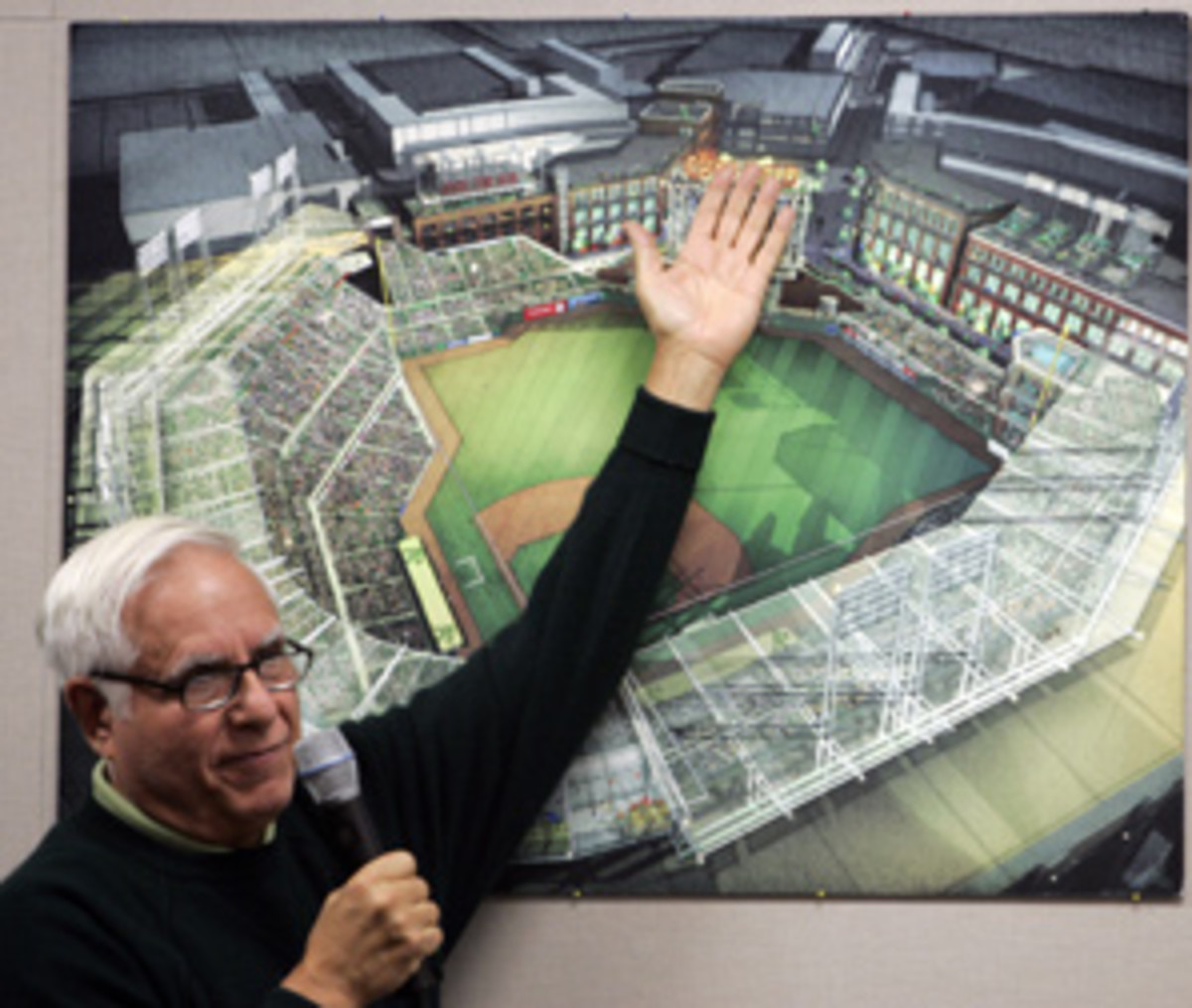A's want new stadium, but is that the best move for Bay Area?


Actual construction may be down in the United States, but it's boom time for mythical stadium construction in the San Francisco Bay Area.
Last week about 11,000 Santa Clara citizens (an amount that would fill just a corner of Candlestick Park) voted to award the San Francisco 49ers $114 million in public money and give the team the right to come up with another $800-plus million for a football stadium that may or may not get built by 2014, or ever.
So now the Oakland A's would like to get into the dream house business. A's owner Lew Wolff told the San Jose Mercury News that the 49ers success at the ballot box showed that the time is right to ask voters in San Jose for a new stadium.
"It bodes very well," Wolff said. There is a working proposal for a $461 million stadium that would be privately financed, but would require at least a $74 million public investment in land and infrastructure costs. According to the Mercury News, San Jose officials would need to have a measure finalized by Aug. 3 for inclusion in a November ballot.
But there are some major issues that don't bode so well for the A's. Big differences between what the 49ers accomplished and what the A's are seeking to do.
Baseball commissioner Bud Selig convened a "blue-ribbon" panel to investigate the A's housing options. That was 15 months ago and still no word on its report. Once the report is issued, Selig will have to study its findings before issuing a ruling.
Selig's usual snail's pace of action doesn't bode well for a brisk resolution to this, instant replay or any other issue that baseball faces. It seems implausible that Selig -- despite being a former fraternity brother of Wolff's -- will have ruled on anything concrete by Aug. 3.
Then there is the thorny problem of the San Francisco Giants, who were awarded territorial rights to San Jose in 1990 when they were seeking to move their team there. Though most experts think the Giants would accept a large payment to cede those rights, the Giants public posture remains that they're not willing to deal. And the commissioner's position, in the past, has always been to back those territorial rights.
Giants managing general partner William Neukom spent almost a quarter century honing his reputation as a powerful antitrust lawyer for Microsoft. His ascension to the top seat in the Giants structure in an era when the team is asserting its territorial dominance is not viewed as accidental. The A's and Major League Baseball could find themselves in a turf war, one that most doubt Selig would embrace or enjoy
But the biggest obstacle for the Oakland A's is themselves. Even skeptics of the 49ers plan, including myself, have to applaud young owner Jed York for diligently and professionally courting the needed votes. The 49ers, after years of seeming not to care, have worked on improving their public image and appearing to listen to their fans.
The A's, in contrast, have run off most of their fans. As usual, the A's are right near the bottom in Major League attendance. Though the team remains in the hunt in the AL West and has an intriguing roster of young talent, their product is overlooked by most of the Bay Area.
Wolff's marketing strategy has been to not so subtly let potential ticket buyers know that they would be foolish to go to games at the rundown Oakland Coliseum. And the fans are listening. The A's aren't just losing their existing fan base and tradition, they've lost an entire Bay Area generation, who think that fun-plus-baseball means going to a Giants game.
The other part of the low attendance equation is the A's strategy of shipping players out as soon as they show promise. The Moneyball movie is back in production, starring Brad Pitt. But Moneyball, the reality, has no stars. It's not allowed in the ongoing flea market in Oakland.
The A's fans that have left have learned not to get attached. Dallas Braden pitches a perfect game? Cool, but where will he be playing next year?
Under Wolff's ownership, the A's have become virtually invisible in Oakland. Wolff would like to leave the town, but in many ways the team has already left.
